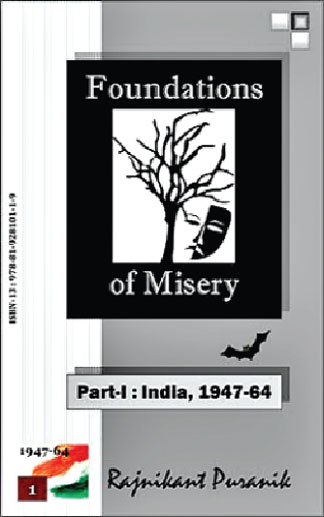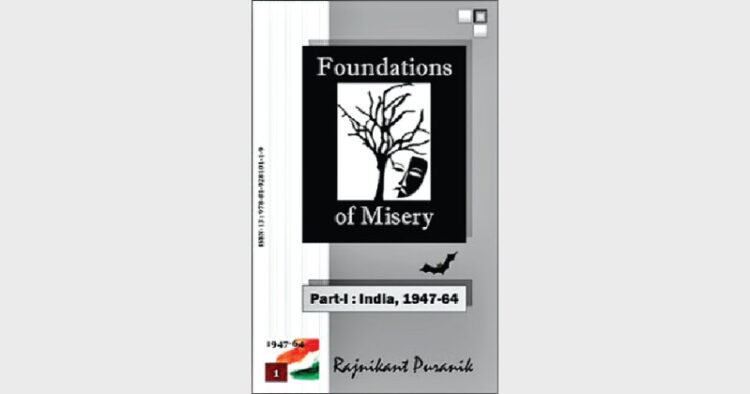Himalayan Misadventure: XIII?
 There is much that is not commonly known about the shocking aspects of the 1962 India-China War, so shocking indeed that S Gopal, Nehru”s official biographer, was constrained to comment: “Things went so wrong that had they not happened it would have been difficult to believe them.” The Henderson-Brooks report covered only the limited aspects their authors were tasked with. The book “Foundations of Misery” by Rajnikant Puranik in its chapter “Himalayan Misadventure” details all the aspects of that avoidable war. We are serialising that chapter.
There is much that is not commonly known about the shocking aspects of the 1962 India-China War, so shocking indeed that S Gopal, Nehru”s official biographer, was constrained to comment: “Things went so wrong that had they not happened it would have been difficult to believe them.” The Henderson-Brooks report covered only the limited aspects their authors were tasked with. The book “Foundations of Misery” by Rajnikant Puranik in its chapter “Himalayan Misadventure” details all the aspects of that avoidable war. We are serialising that chapter.
India did not agree reiterating that the line of actual control should be the position as on 8 September 1962. However, those were precisely the unacceptable Indian positions as on 8 September 1962 in what China considered to be its territory that led to the conflict on 20 October 1962 in the first place, and agreeing to the same would have meant China did something wrong in demolishing those positions it considered illegal. India remained adamant. China considered India’s stand to be highly unreasonable.
24 October – 13 November 1962. There was a lull in fighting. That is, the fighting that began on 20 October 1962 lasted mere 4 days. During the lull period, Indian forces were strengthened on the borders and a new strategy was put in place. India felt that what had happened during 20 to 23 October 1962 was a temporary setback, and that they would teach a fitting lesson to China on the next occasion. Nehru and his group actually believed that the advantage in NEFA lay with the Indian army and that it could give a befitting response to China. A general optimism was created that the worst was over, and henceforth it would be win-win for India! There was an appalling lack of self-assessment and realism both within the government and without.
This is how General LP Sen, heading the Eastern Command, had boasted to the Political Officer, Nari Rustomji, during the lull between the two phases of the war: “We’ve got those bastards where we want them now. Just let them move one step forward, and they’ll get such a thrashing they’ll never forget. Our boys are now in positions where they can fight and show what they’re worth. They’re just itching for a chance to have a real good crack at the Chinks.”
14 November 1962. BM Kaul—the favourite of Nehru and Menon—under whom the debacle of 20-23 October had occurred, and who had since taken ill and recovered, was back—to the dismay of most in the army: they suspected his return would make things worse. India launched an offensive at the Walong sector in NEFA. Was the date chosen by the sycophant Kaul to give Nehru the win as a gift—14th November being his birthday? The consequence, however, was disastrous. China counter-attacked and overran the India forward positions the next day. Chinese kept pushing and moving from two directions from Tawang, with withdrawing Indian troops leaving behind artillery, vehicles and tanks.
19 November 1962. Indian army had specially formed 4 Corps to drive the Chinese away from NEFA. 4 Corps under BM Kaul stood decimated and shifted its headquarters from Tezpur to Gauhati on 19 November 1962. The reverses so demoralised BM Kaul that he advised Army HQ to advise Delhi to get foreign armed forces to help stem the tide of the superior Chinese forces, adding it was not a counsel of fear, but of facing stark realities.
20 November 1962. Whole of NEFA was under the Chinese control, and they were at the gates of Assam. All this within mere 7 days of the renewed fighting on 14 November 1962.
President Dr Radhakrishnan was so aghast that when someone told him of a rumour that General BM Kaul had been taken prisoner by the Chinese, he commented, “It is, unfortunately, untrue.”
The Indian show in the war was so poor, thanks to collapse of command and control at the higher level, lack of preparation and neglect on the military and armament matters, that India became a laughing stock. There was a joke circulating among the aid-givers: “Don”t provide India precious arms. Their soldiers would abandon them in the battle field and run away, and China would ultimately get all our arms!” This is how our soldiers, who fought bravely, got humiliated, for no fault of theirs!!
In the face of reverses, rather than rising up, Churchill-like, to boost the morale of the armed forces and the people, the leaders simply lost their nerves. Nehru even went on radio to announce his sympathy for the people of Assam, indicating as if India had given up on that frontier!
Rajnikant Puranik ?(www.rkpbooks.com, www.facebook.com/fom.p1, rajnikantp.blogspot.in, twitter.com/Rajnikant_rkp, [email protected]).
?
















Comments